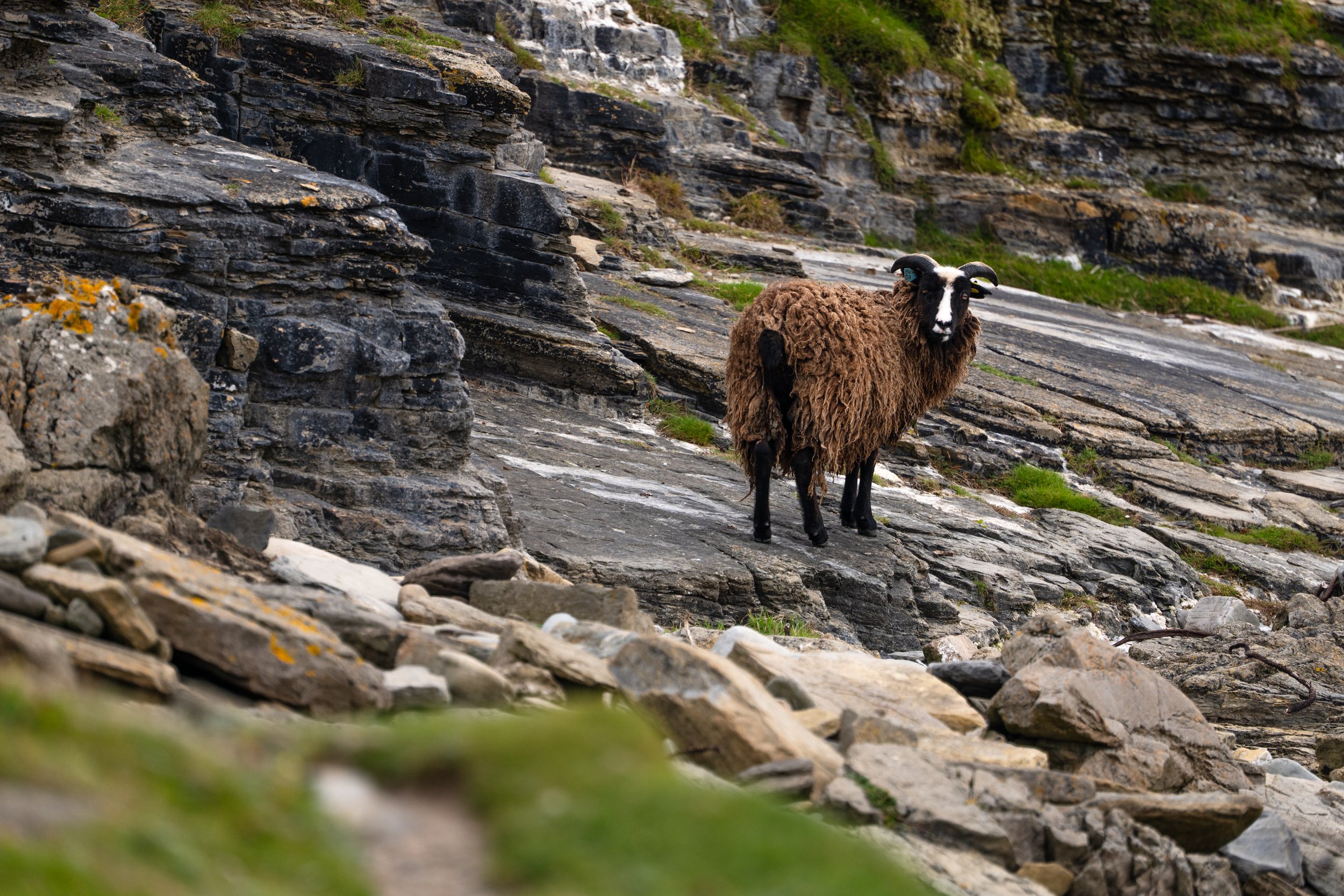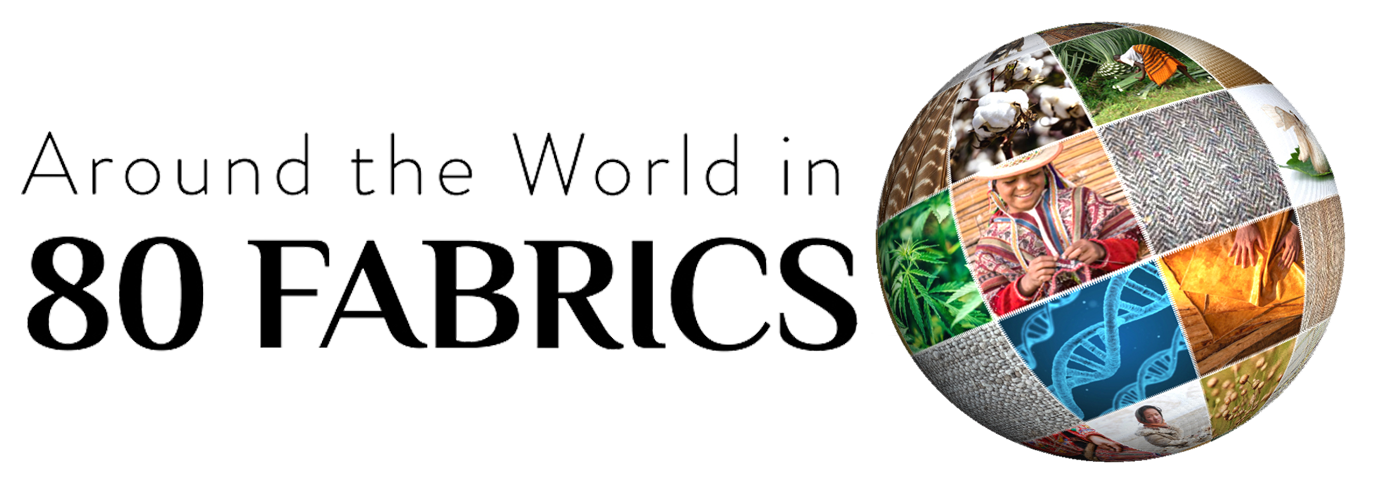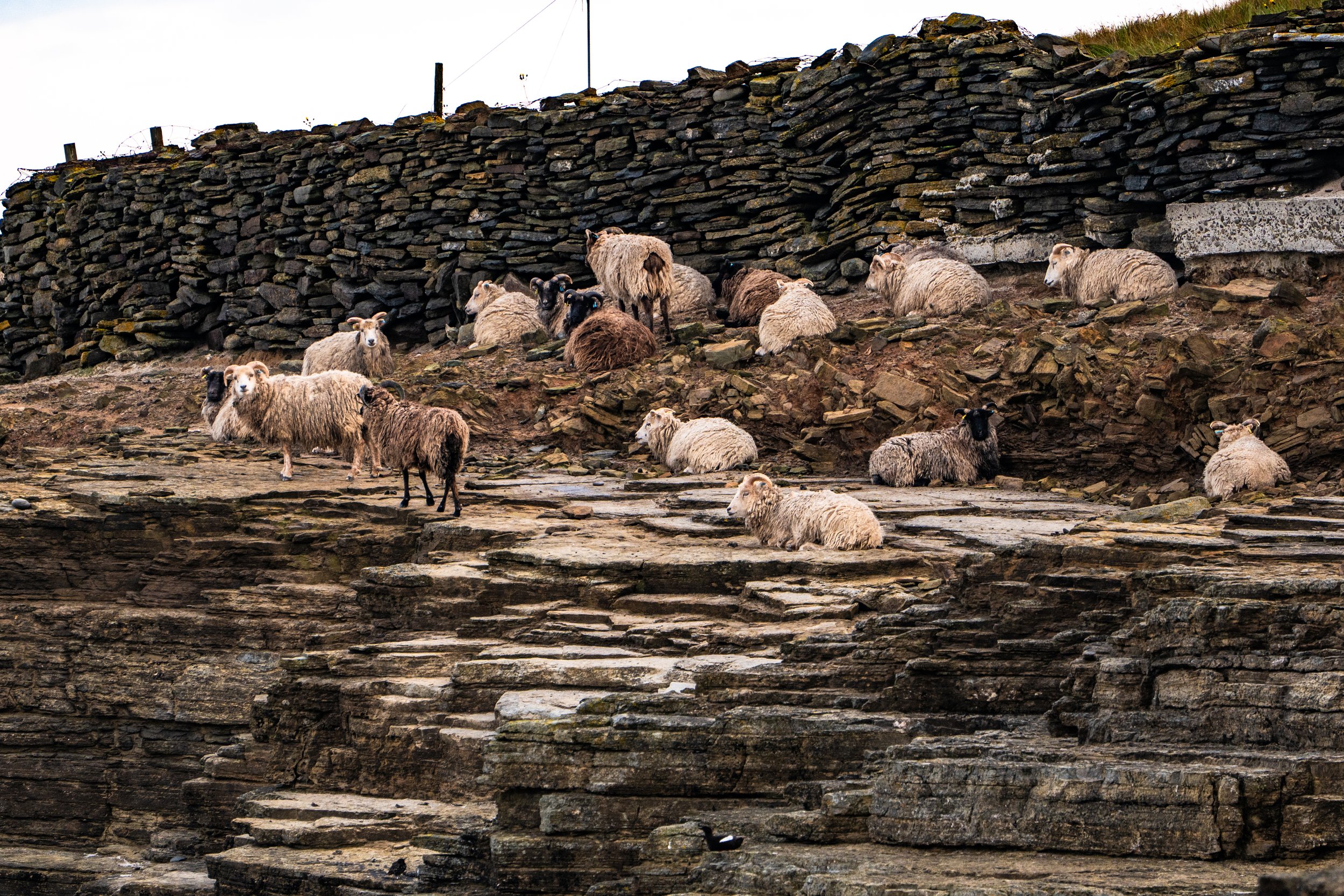
The North Ronaldsay Sheep Festival
July 2023
CATALOG | Seaweed Eating Sheep of Scotland
Exploring regional fibers, biodiverse ecosystems, and the sheep at the center
The Island of North Ronaldsay, Scotland
© Copyright 2024 Around the World in 80 Fabrics
ATW80Fabrics Co-founder Tierney Thys and Photographer Jamie House joined the North Ronaldsay Sheep Festiva, Sheepfest, a volunteer-led conservation event held on the remote island of North Ronaldsay in Orkney, Scotland!
Their aim? To help efforts in restoring the historic drystone dyke that ensures the famous seaweed-eating sheep on the island remain relegated to their tidal grazing grounds and celebrate the island's rich culture through music, art, and education.
This year Sheep Fest spanned a week–and it was packed! Weather permitting drystone dyke repair sessions happened in the mornings and afternoons. There were loads of other activities as well like weaving workshops, tours of the wool mill, bird-watching, a football match of the locals vs the visitors, traditional ceilidh dance lessons and then an actual ceilidh attended by everyone on the island. Tierney's interest in Sheepfest was sparked by her deep fascination with seaweed, sheep, wool, celtic culture and the prospect that a mammal as large as a sheep could subsist solely on a diet of seaweed. She was also intrigued by reports that adding just a small amount of seaweed to the diet of livestock can reduce methane emissions by upwards of 80%--a huge difference given that livestock are responsible for 14% of greenhouse gas emissions. For more on this click here.
Sheep Fest showcases North Ronaldsay's unique ecosystem and is home to a tight-knit community of fewer than 70 year-round inhabitants. During the festival this year, the wee island population sharply increased with 40+ volunteers joining in on the fun. The volunteers’ annual work on the island's 13 mile long, 6 foot high dyke is crucial to safeguarding the resident sheeps’ specialized seaweed diet. And these are truly wily mischievous impressive sheep.
Over the nearly 200 years since the dyke was constructed back in 1831, the North Ronaldsay sheep have had to figure out how to survive primarily on seaweed which doesn’t give up its copper easily. The sheep however have adapted their guts to low copper levels and now if they eat normal grass now they run the risk of getting sick from too much copper! So the dyke is crucial to maintaining their health.
Aside from being so adaptable, these sheep are really wily and mischievous and fun to watch—especially when they are trying to jump over the dyke! Weaving and wool are highlights of the festival but the sheep are the true stars for it is their hardiness that has garnered worldwide attention and put this tiny little island and its industrious inhabitants on the map.







